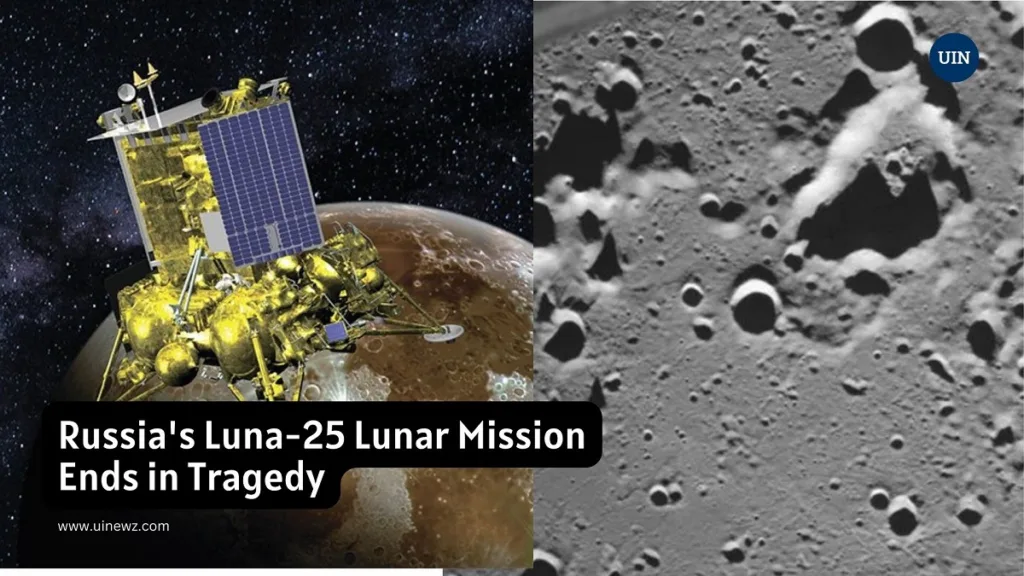In a tragic turn of events, Russia’s lunar expedition, Luna-25, met an unfortunate end when its spacecraft collided with the moon’s terrain instead of executing a gentle landing as planned. The mission had the objective of achieving a controlled touchdown near the moon’s southern pole. However, an unanticipated crisis emerged during the pre-landing manoeuvres, leading to the spacecraft losing communication. This event represents a notable hindrance to Russia’s space program and prompts inquiries into the nation’s prowess in the contemporary space competition.
Table of Contents
The Unfortunate Chain of Events
On Saturday, the Luna-25 lander fired its engine to enter an orbit that would pave the way for a lunar landing. However, just 47 minutes into the engine firing, Roscosmos, the state corporation overseeing Russia’s space activities, lost contact with the spacecraft. Despite efforts to re-establish communication, the lander had deviated from its intended orbit and ultimately collided with the moon’s surface.
Luna-25: Significance of the Mission
Luna-25’s mission was of great importance, as it aimed to be the first ever to reach the moon’s south polar region. Scientists are greatly intrigued by this region because of the potential presence of frozen water, a precious asset for upcoming lunar exploration and settlement ventures. Nevertheless, the mission had significance beyond scientific revelation, as it also carried symbolic importance for Russia’s space program. This program has encountered obstacles and estrangement from Western nations due to geopolitical conflicts.
Russia’s Space Struggles
The Luna-25 failure highlights the difficulties Russia has faced in maintaining its space capabilities and regaining its former glory from the Cold War era. Although Russia has achieved sending astronauts to the International Space Station (ISS) successfully and maintains collaboration with NASA and the European Space Agency on joint space endeavours, its attempts at conducting solo interplanetary missions have faced various challenges.
Challenges and Setbacks
In the past few decades, Russia’s efforts to explore the solar system have encountered obstacles and constraints. The country’s most recent significant interplanetary robotic mission, Phobos-Grunt, did not succeed as a result of challenges during the manufacturing and testing phases. Luna-25’s mishap further underscores Russia’s struggles with space technology development and electronics that can withstand the harsh conditions of space.
Impact on Geopolitics
Throughout history, Russia has leveraged its accomplishments in space to project power and exert influence on the international arena. The achievements of its space program have been closely linked with the Kremlin’s endeavours to enhance its geopolitical alliances and showcase Russia’s prowess across diverse domains. However, with recent tensions and sanctions following Russia’s actions in Ukraine, these ambitions have faced challenges and limitations.
Looking Ahead
The loss of Luna-25 raises questions about Russia’s plans for lunar exploration. The nation must decide whether to attempt the mission again, knowing it could cause further delays and technical difficulties. It’s crucial to acknowledge Russia’s position in the current space race as countries like India, China, and the United States make strides in their space exploration efforts.
In conclusion;
The Luna-25 lunar mission’s failure serves as a timely reminder of the difficulties and complexity of space exploration. It is unclear how Russia will adapt and grow its space program to reclaim its position among the world’s spacefaring nations as the nation struggles with geopolitical pressures and technological limitations.
